2022
Focus on the Automotive Industry & Vehicle Electrification
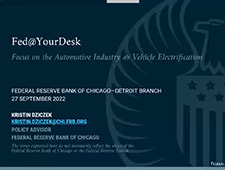
Kristin Dziczek, policy advisor at the Chicago Fed, discusses the numerous challenges facing the auto industry on both the supply side and the demand side in recent years from limited inventories for new car buyers to rising prices primarily because of lingering supply chain disruptions.
What’s Happening in Agriculture?
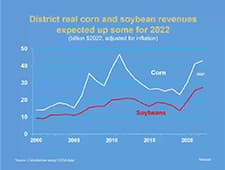
David Oppedahl, Senior Business Economist at the Chicago Fed, discusses the survey findings of the August 2022 AgLetter including farmland values and agricultural credit conditions.
Oil Prices as Drivers of Inflation
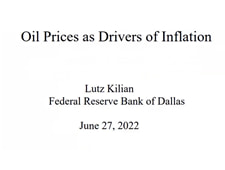
U.S. inflation has surged in recent months, renewing interest in understanding how rising oil prices have contributed to inflation. Lutz Kilian, Senior Economic Policy Advisor at the Dallas Fed, discusses:
- How motor fuel pricing relates to fluctuations in crude oil prices
- How different inflation measures have responded to higher motor fuel prices
- The effects of the Russian invasion of Ukraine on global oil prices
Tools to Help Low-Wage Workers Move Up the Career Ladder
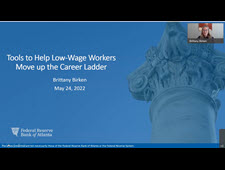
When a modest wage increase leaves a worker financially worse off, the worker experiences what’s known as a “benefits cliff,” which can be a disincentive to advance beyond low-wage jobs. In this webinar, the Atlanta Fed’s Brittany Birken, principal adviser on the Community and Economic Development team, will review the Atlanta Fed’s tools designed to provide information about how benefits change with income gains
FedNow Update
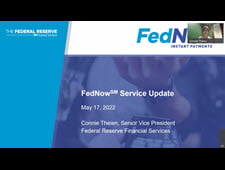
Hear the most recent update on FedNow, the new instant payments infrastructure being developed by the Federal Reserve from Connie Theien, Senior Vice President and Director of Industry Relations at the Chicago Fed.
The State of Economic Equity
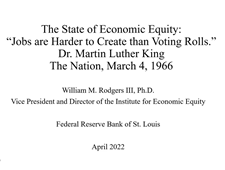
William R. Rodgers III, Vice President and Director of the Institute for Economic Equity at the St. Louis Fed, discussed current challenges facing vulnerable workers in 2022, including Covid-19 impacts, child care, housing affordability and household debt.
What’s Happening in Agriculture?

David Oppedahl, Senior Business Economist at the Chicago Fed, discusses the survey findings of the February 2022 AgLetter including farmland values and agricultural credit conditions.
How Can We Improve the Childcare Space for All Stakeholders?
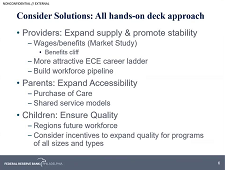
The childcare system faces a myriad of challenges that have only been exacerbated by the Covid-19 pandemic. Sloane discusses what might be needed to improve the early care and education system and explores why traditional policies haven’t been as effective in addressing current challenges.
2021
Childcare Workers amidst the Covid-19 Pandemic

Childcare is critical to the workforce, yet a tough business – made even tougher in the Covid-19 pandemic. Childcare workers situations have disproportionately worsened as the pandemic continues - highlighted further when compared to the situations of their K-12 public school teacher counterparts.
Local Economic Snapshot
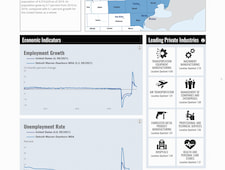
Learn how to use the new Chicago Fed data tool “Local Economic Snapshot.” The tool provides the opportunity to choose a preferred location and learn the basics of the current economy with a curated set of economic and demographic data.
FRED
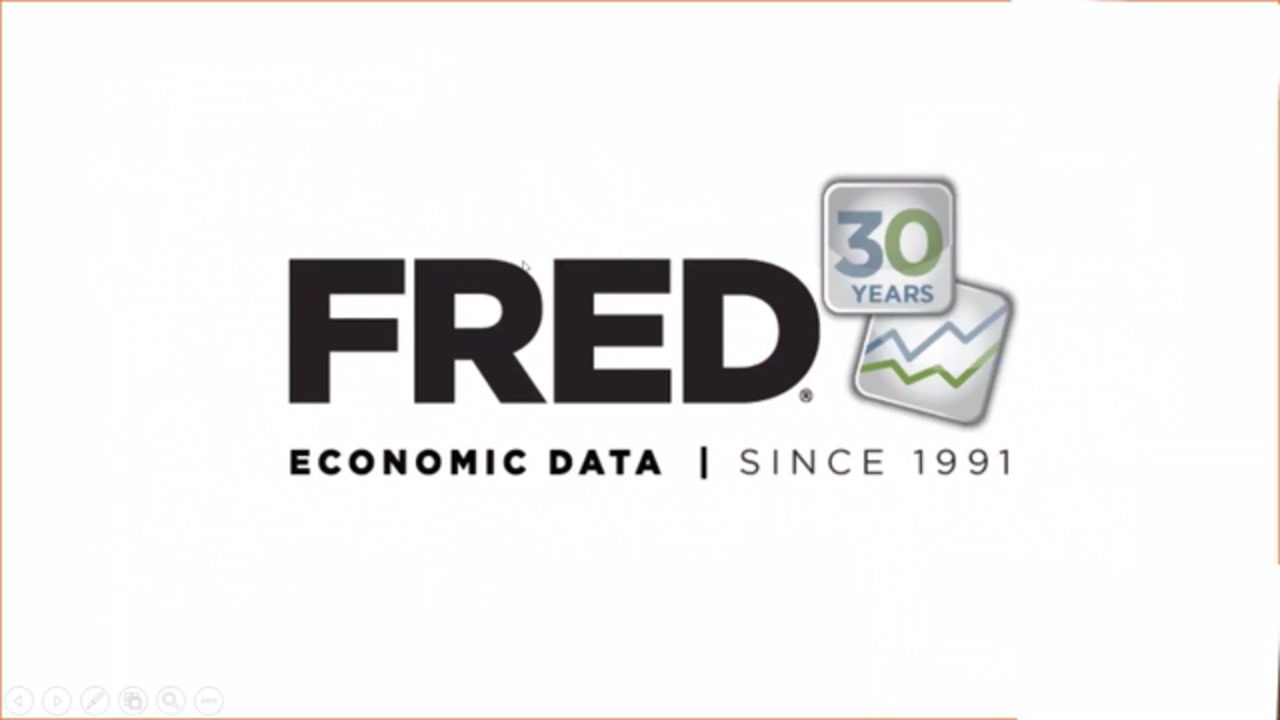
Diego Mendez-Carbajo and Yvetta Fortova, both from the Federal Reserve Bank of St. Louis, discuss Federal Reserve Economic Data (FRED). FRED provides data from scores of national, international, public, and private sources and combines it with tools that help the user understand, interact with, display, and disseminate the data.
State of the Economy Update
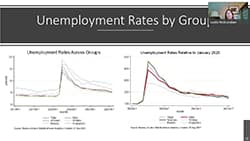
Leslie McGranahan, vice president and director of regional research at the Chicago Fed, presents an update on how the U.S. economy has been faring and the economic conditions of households.
What's Happening in Agriculture?
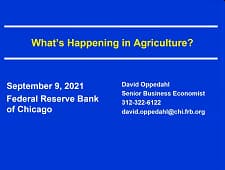
David Oppedahl discusses the survey findings of the August 2021 AgLetter including farmland values and agricultural credit conditions.
The Economic Gains from Equity
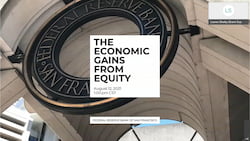
Laura Choi, Vice President, Community Development; Lily Seitelman, Research Associate and Shelby Buckman, Research Associate; - all from the Federal Reserve Bank of San Francisco - discuss their recent publication “The Economic Gains from Equity” with a discussion around how gender and race disparities have hindered economic activity in significant ways.
Should the Fed Issue Digital Currency?
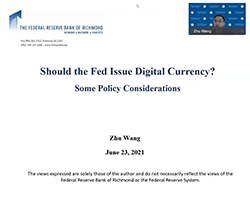
Zhu Wang, Vice President for Research in Financial and Payments Systems at the Federal Reserve Bank of Richmond discusses the costs and benefits of creating central bank digital currency (CBDC), informed by his recent co-authored Economic Brief.
Market Manipulation and Financial Stability: YOLOing the Market
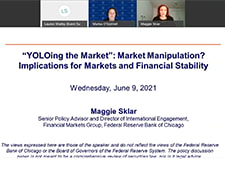
Maggie Sklar, Senior Policy Advisor and Director of International Engagement in the Financial Markets Group at the Federal Reserve Bank of Chicago, discusses recent changes in retail investment and answers questions as informed by her recent working paper.
The Economic and Fiscal Impacts of Immigration
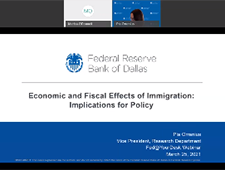
Pia Orrenius, Vice President and Senior Economist at the Federal Reserve Bank of Dallas, discusses the economic and fiscal impacts of immigration as it is poised to play a bigger role in labor force growth than it has in decades.
What’s Happening in Agriculture?
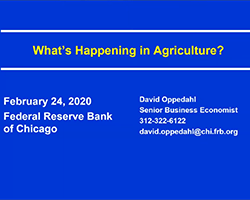
David Oppedahl, Senior Business Economist at the Chicago Fed, discusses the survey findings in this month’s Ag Letter - including where farmland values stand, where they are predicted to move and the status of agricultural credit conditions including nominal interest rates and repayment status outlook.
What’s Happening in the U.S. Economy?
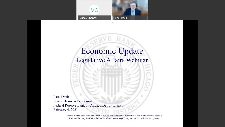
Chicago Fed Senior Business Economist Paul Traub provides an update on how the U.S. economy has been faring amidst the Covid-19 pandemic, a new Presidential administration and the start of the 117th Congress.
2020
Helping Homeowners During the Covid-19 Pandemic: Lessons from the Great Recession
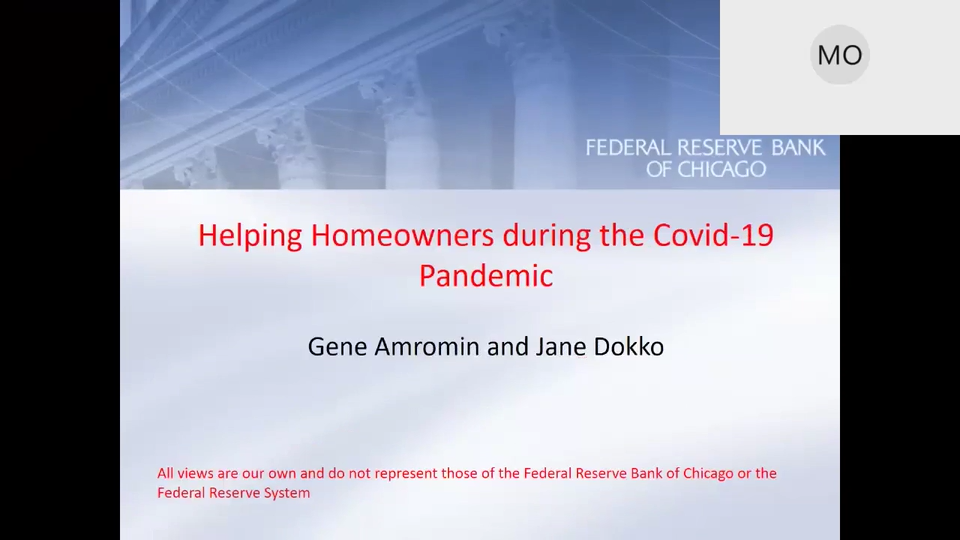
Gene Amromin, Vice President and Director of Financial Research at the Chicago Fed, and Jane Dokko, Assistant Vice President, Community Development and Policy Studies at the Chicago Fed, present their conclusions on lessons learned from the Great Recession and how they might be applied to develop policy that helps financially stressed homeowners during the Covid-19 pandemic.
What’s Happening in the U.S. Economy?
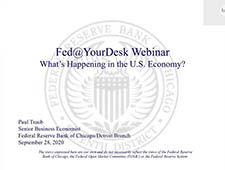
Chicago Fed Senior Business Economist Paul Traub presents an update on the U.S. economy, including personal consumption, business investment, global trade, government spending, employment conditions, inflation and interest rates.
The Impact of COVID-19 on Child Care Markets
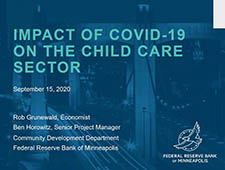
Rob Grunewald, Economist, and Ben Horowitz, Senior Project Manager, will provide an overview of the Federal Reserve Bank of Minneapolis’ research and analysis regarding the impact of COVID-19 on the child care market.
What’s Happening in Agriculture?
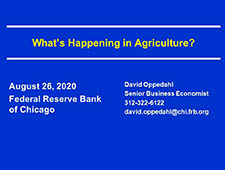
David Oppedahl discusses findings in the August 2020 Chicago Fed Ag Letter, including farmland values, agricultural credit conditions, borrowers’ repayment issues and nominal interest rates for farm-related loans.
Strengthening Financial Empowerment in Indian Country
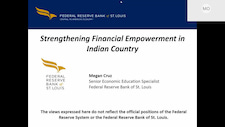
Megan Cruz, Senior Economic Education Specialist at the Federal Reserve Bank of St. Louis, provides an overview of the St. Louis Fed’s efforts in partnering with Native American tribes and communities to implement personal finance and economic education programs.
Conclusions From Conversations About Economic Inclusion From the Midwest
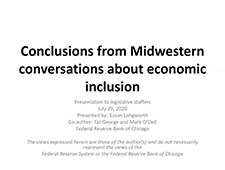
Prior to COVID-19, the Midwest experienced a decade of growth that benefited some populations and places more than others. Susan summarizes findings from focus groups on what leaders might consider to create sustained economic resilience, implications for inclusive policy and practice and the relevance of COVID-19 to preexisting barriers and divisions.
Unemployment During the COVID-19 Pandemic
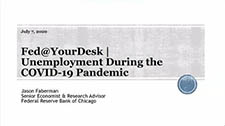
As the effects of COVID-19 have intensified, the official measures of unemployment may not fully capture the devastation to the labor market. Jason Faberman, Senior Economist and Research Advisor, Federal Reserve Bank of Chicago, discusses labor market changes during the COVID-19 crisis.
Labor Market Trends and Workforce Development Responses to Covid-19
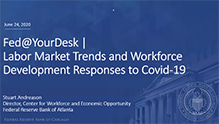
Atlanta Fed Director, Center for Workforce and Economic Opportunity Stuart Andreason, author of Introducing the Unemployment Claims Monitor, discusses his research on unemployment during Covid-19 and how it can be applied to workforce development policies as economies reopen.
Agriculture in the Time of Covid-19
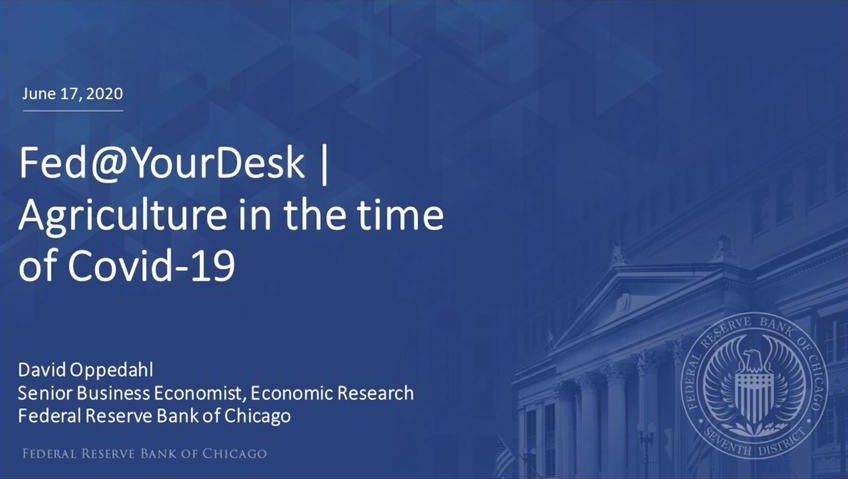
According to the most recent Ag Letter, the current agriculture economy has decreased substantially, alongside much of the economy during the Covid-19 pandemic. What is changing for farmers, the food sector and the economy? Join us for a discussion with senior business economist David Oppedahl to discuss farmland values and how they have changed, key concerns of farmers and agricultural bankers and challenges that agricultural producers may have in the coming months.
Instant Payments – An Update on FedNow
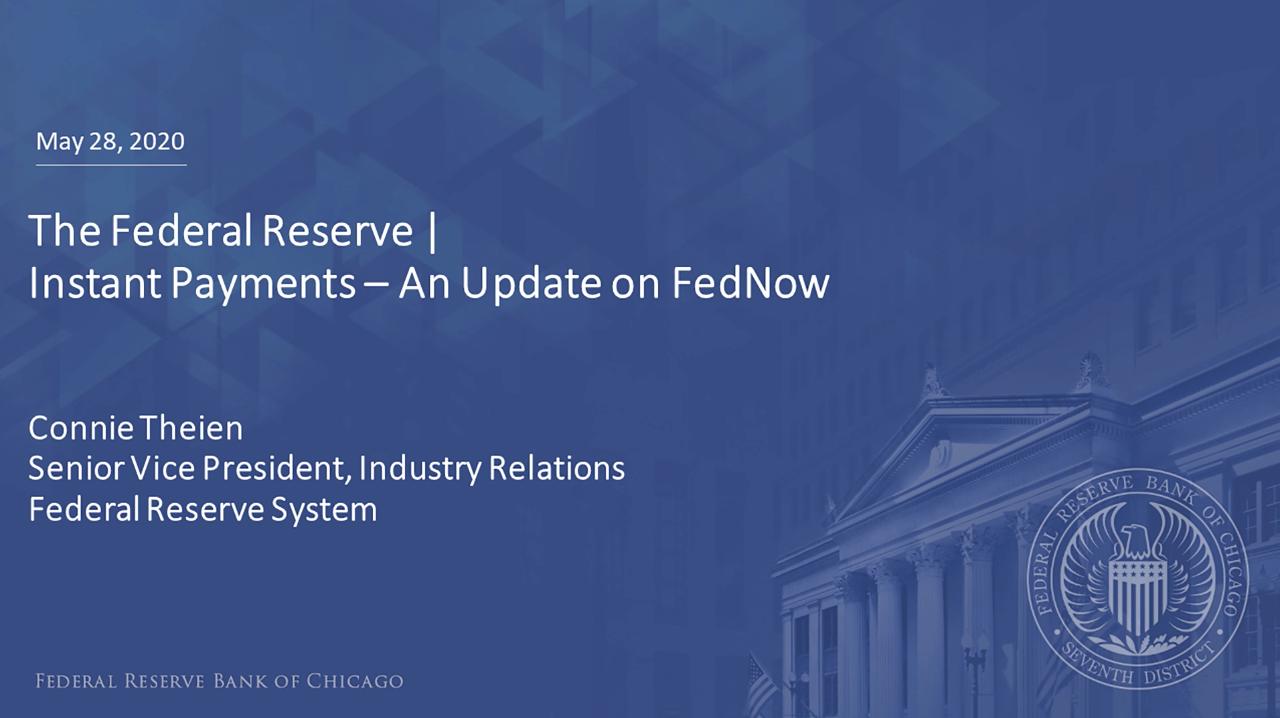
Join Connie Theien, Senior Vice President, Industry Relations for the Federal Reserve System as she provides the latest update on development of FedNow – the Federal Reserve’s instant payments service.
The Effects of the Novel Coronavirus Pandemic on Service Workers
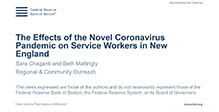
The coronavirus pandemic is exacerbating existing inequalities in the United States. Service workers, including those working in food service, cleaning and building maintenance, retail and hospitality, and warehouse jobs are facing particularly acute challenges at this time.
Fintech Lending to Small Businesses

Ann Marie from the Federal Reserve Bank of Cleveland and Barbara from the Federal Reserve Board discuss their research on the experiences of small businesses that seek credit from fintech lenders.
What’s Happening in Agriculture
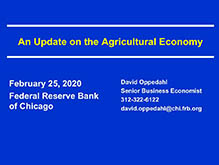
According to the most recent summary of economic conditions, farmers are somewhat optimistic about trade and agriculture. Yet, has agriculture's financial situation changed from a year ago?
David discusses farmland values, key concerns of farmers and agricultural bankers, and challenges that agricultural producers may have the rest of the year.
What's Happening in the U.S. Economy
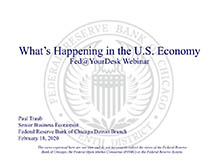
At the January Federal Open Market Committee meeting, the Committee indicated that the labor market remains strong and that economic activity continues to rise at a moderate rate. They also mentioned the following: job gains have been solid recently. The unemployment rate has remained low. Household spending has been rising at a moderate pace. Business fixed investment and exports remain weak.
Paul discusses what this means for the U.S. economy.
What is Behind the Persistence of the Racial Wealth Gap?

Dionissi, Dan, and Eric discuss the persistence of the racial wealth gap and specifically why black households in the U.S. have, on average, less weather than white households.
2019
The Founding of America's First Black Banks
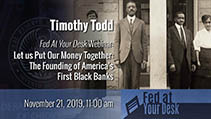
Tim Todd discusses the widely unknown history of African American banks that provided benefits to the communities they served. The Kansas City Fed recently published the historical book, Let Us Put Our Money Together: The Founding of America's First Black Banks. Discover how three banks – True Reformers, Capital Savings Bank, and the Alabama Penny Saving Bank – innovated community banking.
Real Wage Growth over the Recent Expansion
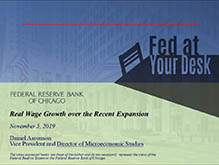
Dan discusses the link between real wage growth and unemployment for different demographic groups and how the economic recovery has impacted less advantaged groups.
An Outlook on the U.S. and Michigan Economies

Paul discusses the current economic situation for the U.S. and Michigan, provides an update of economic activity for Detroit, and the Fed’s perspective and an update on monetary policy.
Note: Due to technical difficulties, a recording of this webinar is not available. You may download the slide deck here.
Emissions Cheating and Its Impact on Child Health
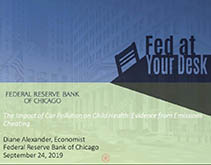
The State of Agriculture

The Value of Infrastructure
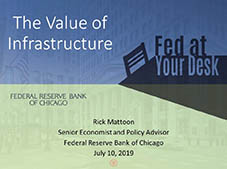
U.S. and Michigan Economic Outlooks
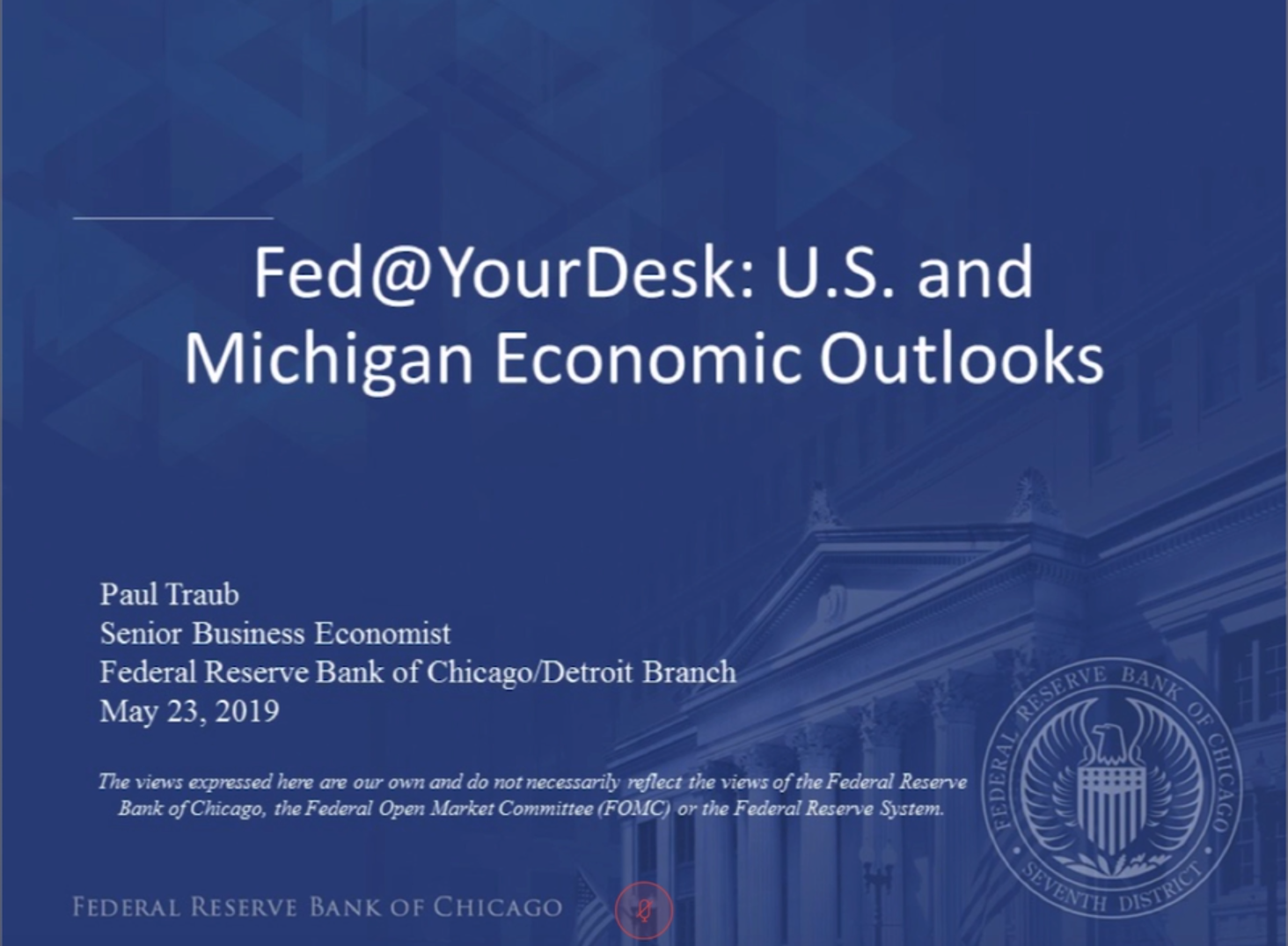
The Ag Economy: What's Changed, What's the Same
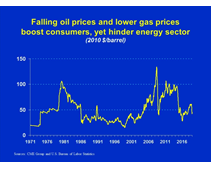
View webinars going back to 2017








